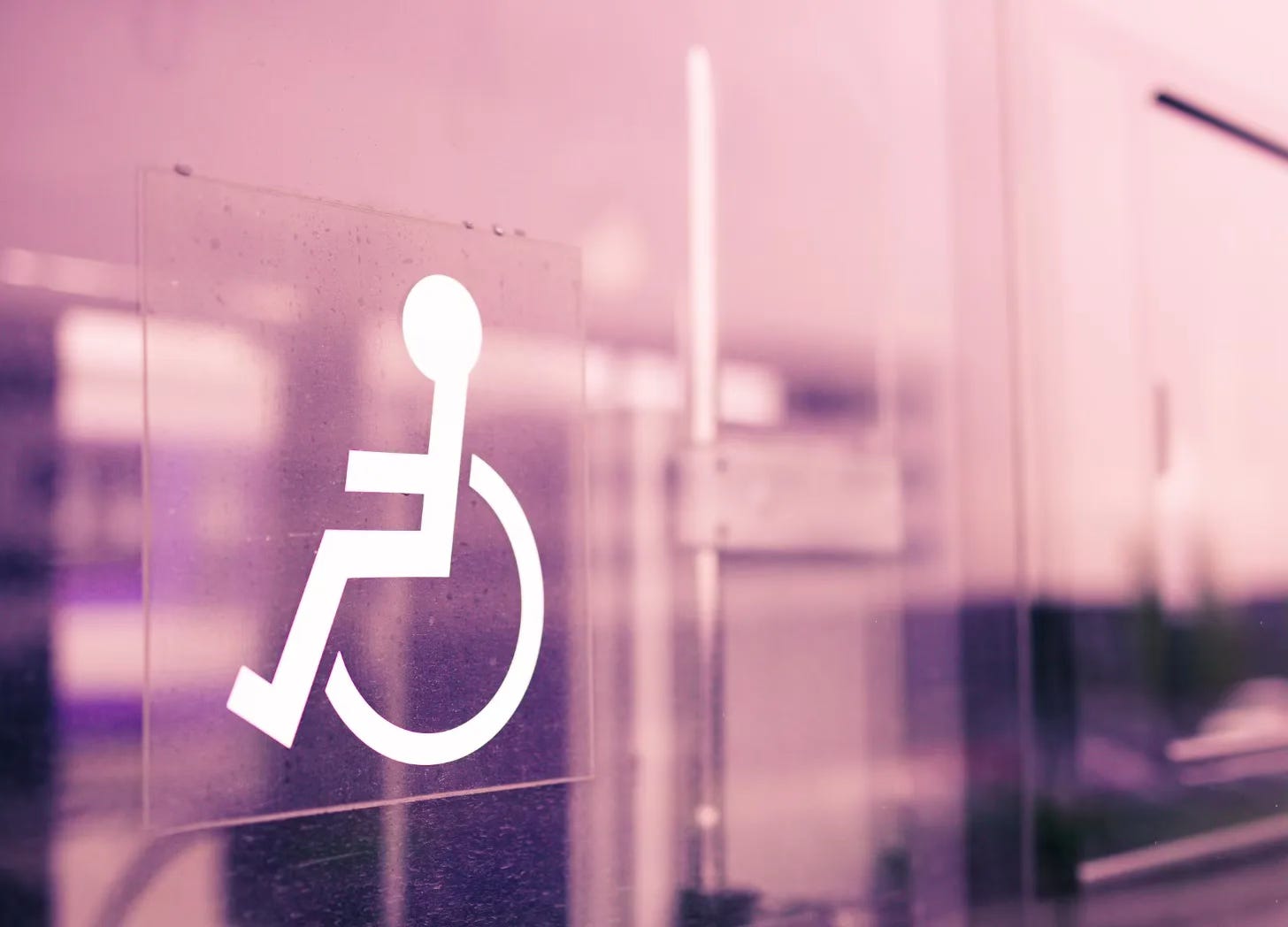Three disability links for Wednesday, December 11, 2024.
1. Submitting Comments in Support of DOL Rule To Eliminate Section 14(c), Ending Subminimum Wages for Disabled People
Mia Ives-Rublee and Casey Doherty, Center for American Progress - December 6, 2024
“The DOL is asking for the public to comment on a possible limited extension provision beyond the end of the proposed three-year phaseout period, as well as on giving employers who use Section 14(c) the ability to apply for an extension and what that extension would look like. Specifically, the DOL wants to hear the public’s opinions on: 1) the length of time of the extension; 2) the reasons that would qualify an employer for an extension; 3) the paperwork the employer should provide to prove a need for an extension; 4) how the requests for extensions would be reviewed; and 5) how the employer would apply for an extension.”
I don’t often share direct requests for advocacy. That’s partially because there aren't too many of them, at least not really specific ones like this. The U.S. Department of Labor is recommending the phase-out of sub-minimum wage for people with disabilities, and is looking for public comment on the idea. With a new administration coming in January — one that says it wants to radically reshape federal government departments like the Justice Department — it’s more important than ever for people who support ending sub-minimum wage to weigh in. My guess is that unless the new Trump Administration officials just don’t pay any attention to this issue, they will try to reverse the recommendation. I wouldn’t be surprised if they argued that it’s a reform championed by disability activist “elites,” and not supported by “real” disabled people and their families. So now is the time to rack up as much evidence as possible that ending sub-minimum wage isn’t a niche advocacy project — but something that most people actually involved agree is necessary and long overdue.
2. Cracker Barrel apologizes after turning away students with disabilities
Joseph Lamour, Today - December 9, 2024
“‘The CCPS worker said the staff was ‘blatantly rude’ and ‘ignored’ all of the students, and once they talked with a general manager, they were told the eatery doesn’t ‘accommodate to this type of group.’”
At first glance — and last glance too, this seems like a pretty clear case of disability discrimination in a public-serving business covered by easiest to understand part of the Americans with Disabilities Act. At best, the restaurant employees left the distinct impression that they were refusing to serve a group of disabled customers because they were disabled. Even if it was only an impression, and in fact more of a logistical and scheduling problem as the restaurant claims, impressions of ableism in situations like this can be as bad as actual discrimination. At the same time, the incident raises some questions for me:
Is it the best idea to encourage community integration for disabled students by bringing large groups of them, en masse, to restaurants — all organized in advance? Or, is it another example of why teaching disabled students in segregated groups creates added problems?
What kind of training do Special Education and disability service personnel get on disability rights laws like the ADA — how they apply in different situations and how best to use them to support community integration and individual disabled people’s access and equality?
Do front-line employees of popular restaurant chains like Cracker Barrel get training on the ADA and what accommodating customers with disabilities means? If they are trained, who’s doing the training — people with a personal understanding of disability discrimination, or lawyers and managers whose priority is merely to avoid lawsuits?\
Isn’t it possible that two things were true at once — that there really was a problem accommodating a large group that somehow hadn’t made a proper reservation, and the fact the group was made up of people with disabilities might have added an ableist twist to the employees’ frustration and interactions?
3. Inaccessible Venue Forces Disabled Person to Be Inspiring Again
Kayla, The Squeaky Wheel - December 9, 2024
“‘We just love having Maria at events,’ the gallery owner, John Meadia, told us. ‘She lifts up everyone’s spirit by being so inspirational. She needs help to get into the gallery, between some of the exhibits and onto the stage for the Q&A, but she persists through it all in a way that brings hope and inspiration to everyone else who can just … walk.’”
It’s been a while since I shared something from the disability satire site The Squeaky Wheel. This one highlights another facet of inaccessibility and disability discrimination — the way habits of seeing disabled people as “inspirational” for overcoming obstacles can indirectly distract attention from actually removing those barriers. It’s one of the reasons why “inspiration porn” is harmful, not just cringe.
Disability Thinking Weekday is moving!
As explained in the December 2 newsletter, we are moving from Substack to Ghost on January 1, 2025. I had asked for people to help me with the approximately $400 in moving expenses, by renewing their paid subscriptions early. Unfortunately, Substack doesn’t seem to allow this. So there are two options if you want to provide some extra support:
1. Click the link to make a one-time donation through Ko-Fi, or,
2. Wait until the move in January, and start a new annual membership then.
Either way, annual paid memberships will still be set at a discounted price of $40 through December and January.





